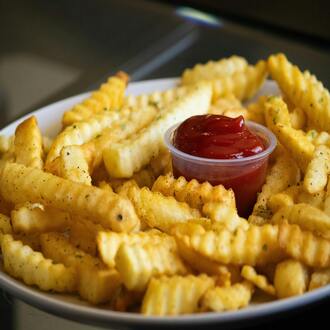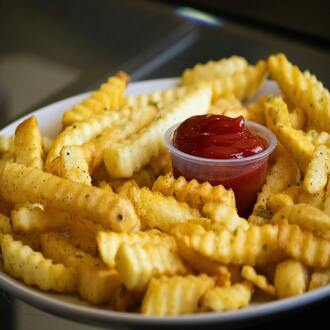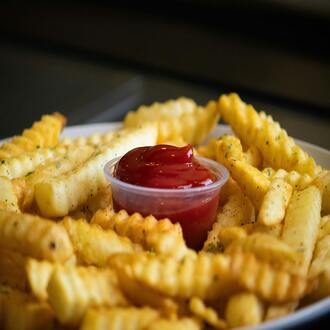Transcription The meal after training
After finishing strength training, it is essential to recover all the energy and muscle protein reserves that were used during intense exercise. Not eating this meal can cause you from slight muscular pains to an intense exhaustion that does not allow you to perform at your best the next day.
Therefore, what the athlete eats after training is as important to enhance the effect of exercise on the muscle, as what he eats before training. In this presentation we will learn about the nutrients needed to speed up the recovery process, as well as the most recommended foods for post-workout meals.
What nutrients speed up the post-workout recovery process?
To recover both energy reserves and muscle protein consumed by intense exercise, it is recommended that after finishing a strength training session and after a reasonable period of rest (perhaps between one and two hours), carbohydrates and proteins should be consumed in the following proportion:
- For every three to four grams of carbohydrates one gram of protein.
Amounts and types of carbohydrates that should be consumed after strength training
- 1 to 1.5 grams of carbohydrate per kilogram of body mass is recommended.
- When the athlete performs more than one training session per day it will be necessary to ingest simple carbohydrates after the first workout to recover energy reserves as quickly as possible. The most recommended simple carbohydrates are those that provide large amounts of vitamins, minerals and bioactive substances. For example: fruits, milk, white bread, white rice, honey, etcetera.
- After the second training session, or when the athlete performs only one daily session, it is not necessary to take only fast absorbing carbohydrates; since an intake that is composed of simple and complex carbohydrates could replenish the glycogen reserves for the following day. In these cases, fruits, milk with whole grain cereals, slices of whole wheat bread, etc. can be eaten.
Amounts and types of protein to be consumed after strength training sessions
- The amount of protein needed to boost the exercise response in the muscle after training is low. Between 0.2 and 0.4 grams of protein per kilogram of body mass is recommended. If the athlete ingests more than the recommended amount of protein, it would be wasted, since the organism, when it manages to supply itself with the proteins it requires, the ones that are left over, are only used as a source of energy.
- The proteins recommended for post-workout meals are those of high biological value, such as: protein powder, milk and its derivatives, eggs, meats (preferably turkey and chicken), fish, etc.
What are the guidelines to follow with fats when planning post-workout meals?
After intense training or competition, the consumption of foods rich in fats would affect the correct recharge of energy in the muscle, therefore it is recommended that athletes cover their energy and protein requirements after training, consuming products that contain little fat. For example: fruits, low-fat dairy products, protein powders and low-fat meats.
On the other hand, they are advised to consume at times away from training and on rest days, sufficient amounts of healthy fats, such as olive oil, oily fish and nuts, in order to meet their needs for essential fatty acids.
What are the requirements for athletes' diets on rest days?
- During the rest day the athlete needs to include in the diet a proportion of carbohydrates and proteins very similar to the rest of the days, in order to stimulate glycogen resynthesis and prepare for the next day's training.
- It is recommended to distribute the meals throughout the day in five or six sufficient portions, where carbohydrates and proteins are included in order to maintain a regular recovery rhythm.
- Include sufficient amounts of healthy fats in the diet to reduce pain, muscle inflammation and promote the athlete's rest.
- Excessive "binge" eating should not be done at any meal.
Importance of post-workout meals
- They enhance the effect of exercise on the muscle, contributing to its correct recovery and development.
- They allow the rapid replenishment of energy and nutrients lost during intense exercise.
- They reduce the effects of fatigue and pain caused by rigorous physical training.
- They accelerate the resynthesis of glycogen and the repair of muscle fibers.
food after workout




